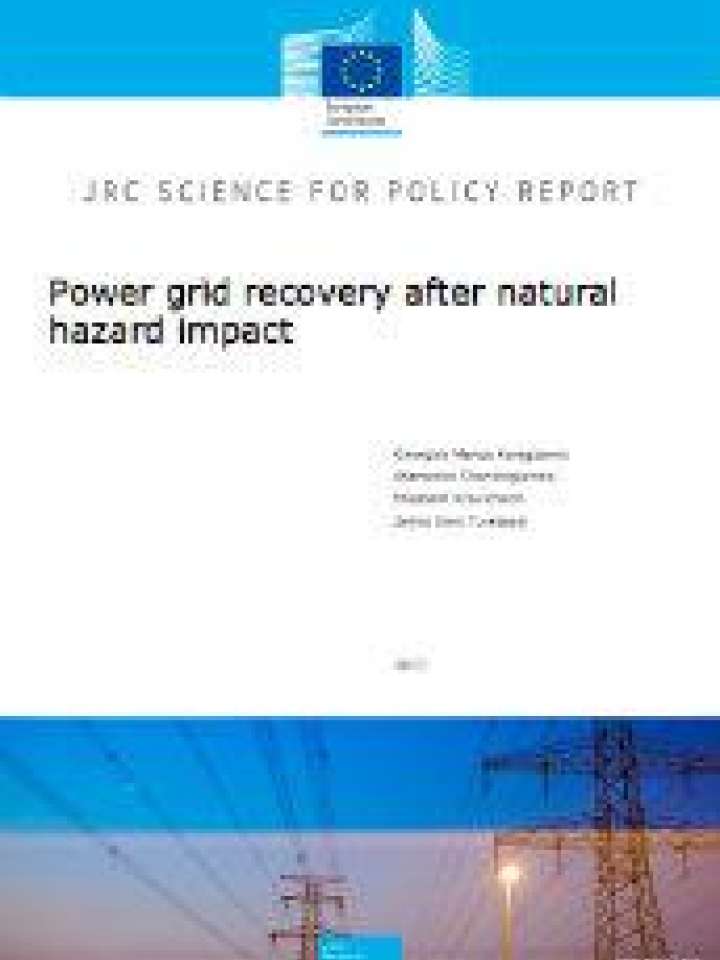Power grid recovery after natural hazard impact
This study analyzed the effects of earthquakes, floods and space weather on the power grid in the European Union to identify vulnerabilities and to understand how these natural hazards influence the recovery time of electric utilities.
The following recommendations related to policy, hazard mitigation and emergency management emerged from the findings of this study:
- Whenever possible, risk assessments across different EU policy areas directly or indirectly affecting electricity infrastructures should use a consistent set of scenarios.
- Risk management efforts should be integrated to maximize efficiency.
- There should be a transition from hardening system components and facilities to building resilience into the power grid to enable the system to function even under disaster conditions or recover more quickly.
- The resilience of the European power grid to extreme space weather should be assessed.
- TSOs/DSOs should develop, implement and exercise outage management plans. These plans should be updated when gaps are identified, e.g. in case of climate change.
- Spare items should be stockpiled to expedite the repair or replacement of key assets and equipment.
- Interoperability among neighboring TSOs/DSOs, and between TSOs/DSOs and emergency management organizations should be ensured.
- Repairs to critical electricity customers should be prioritized.
Explore further
